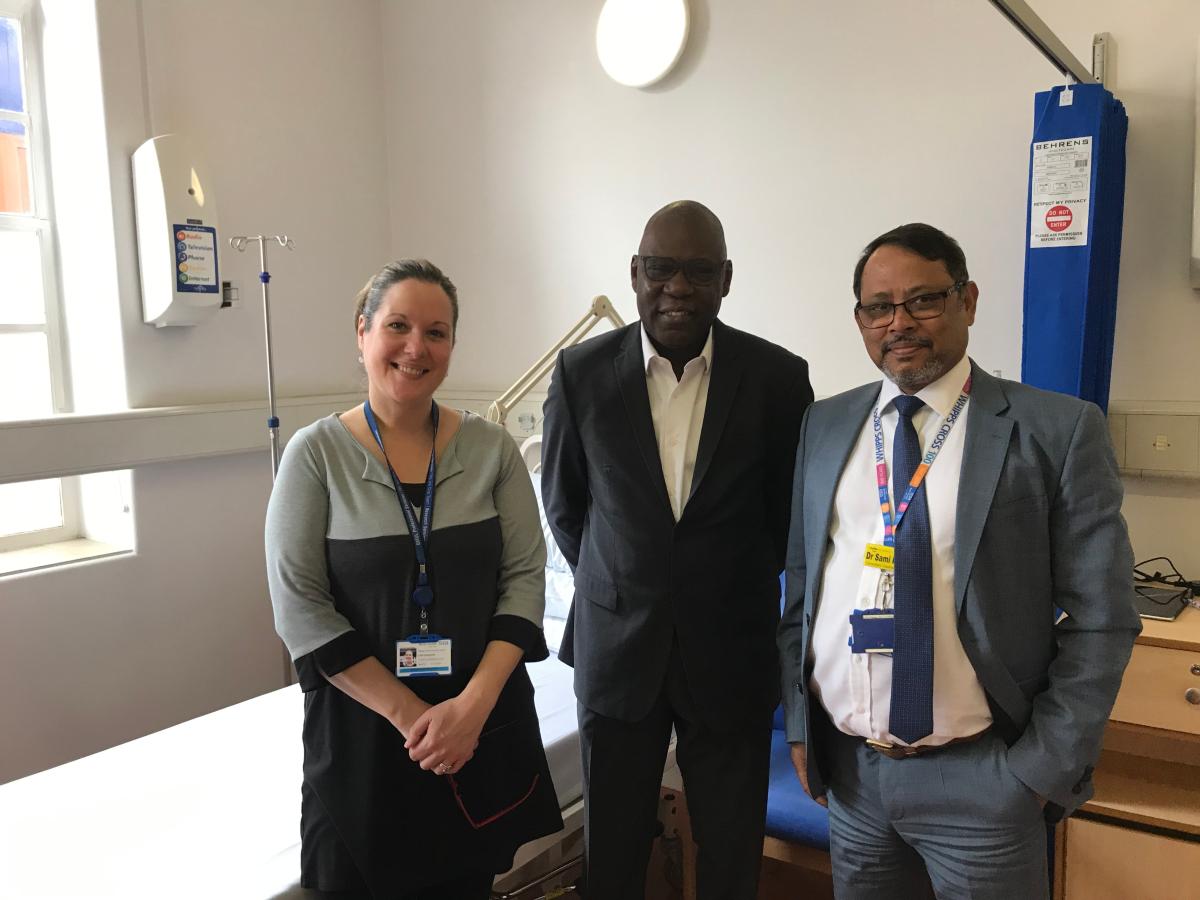Patient story: Albert's experience of a clinical trial

Albert was diagnosed with inflammatory bowel disease over ten years ago. He complained of abdominal cramps, and didn’t realise he was suffering with symptoms until he went to his local GP who referred him for further tests. Investigations at Whipps Cross Hospital confirmed that he suffered from inflammatory bowel disease, a long term condition which can impact a patient’s daily life.
“I remember feeling very frustrated that this condition was starting to impact my daily routine. I suffered from symptoms such as bloating, painful abdominal cramps, and the constant urge to go to the toilet, which made me feel embarrassed and withdrawn. Simple tasks such as travelling to work became difficult, and I started to dread social situations in case people would notice my condition.”
“I went to seek help from a private doctor, but I found no solutions and they simply monitored my condition. I wanted answers, to find out more about how I could manage my condition, and that’s when I contacted Dr. Hoque who introduced me to a clinical trial programme.”
Dr. Hoque invited Albert to Whipps Cross to take part in a clinical trial. He listened to Albert’s story and suggested that taking part in a clinical trial could help manage his condition, and allow clinicians to conduct further research to find ways of helping Albert manage his symptoms. Clinical trials explore testing medication to find out if it can be used to suppress symptoms, or to examine the side effects of a particular type of drug to determine if it is an effective way to treat a medical condition.
Patients always given thorough information about taking part in clinical trials. The clinical trial team will run through side effects or potential risks, and patients are always given the opportunity to ask questions or talk through their concerns to find out if taking part in a clinical trial is suitable for them. The Clinical Research Team will then work closely with the patient, and will co-ordinate a treatment plan to administer medicine, and observe which drugs can effectively manage or eliminate the patient’s symptoms.
In Albert’s case, his current trial involves taking one tablet of Ozanimod once a day. This drug helps to block the bowel receptors to help reduce pain and inflammation caused by ulcerative colitis. Albert says that taking part in this clinical trial has improved his confidence, and has enabled him to improve his lifestyle. He maintains a balanced diet and takes part in an exercise programme which has boosted his wellbeing and fitness levels.
“Since starting the clinical trial, I manage my day more effectively and I feel in control of my life again. I highly recommend the Whipps Cross clinical trial team as they give me constant support and all of the staff in Dr. Hoque’s team are highly professional and kind.
“I keep a daily diary to note down any symptoms or side effects, but I know that if I have any concerns, the team are always an email or phone call away, and can solve a problem at the drop of a hat.”
Clinical trials can sometimes be time consuming for patients like Albert, but he agrees that signing up to take part in a clinical trial has enabled him to improve his quality of life. Patients usually have telephone consultations every six weeks, and routine appointments can involve having additional blood tests to examine potential side effects caused by the medication. Many clinical trials are designed to show whether new medicines work as expected. These results are then sent to the MHRA, which decides whether to allow the company making the medicine to market it for a particular use.
Clinical trials are beneficial to help clinicians discover new ways to treat or manage medical conditions. Research is imperative to develop new methods of treating medical conditions, which can help patients like Albert live happier lives. Albert is now passionate about developing research and would recommend patients to consider taking part in clinical trials alongside the regular care that they receive.
“I would recommend other patients to consider the opportunity to help develop research. It’s important to explore alternative options that can help other people who are going through a similar experience or are also diagnosed with your condition. You have to be prepared to take a part in order to help find alternative solutions. So get in touch with the clinical trial team at Whipps Cross Hospital, and help make a difference.”
